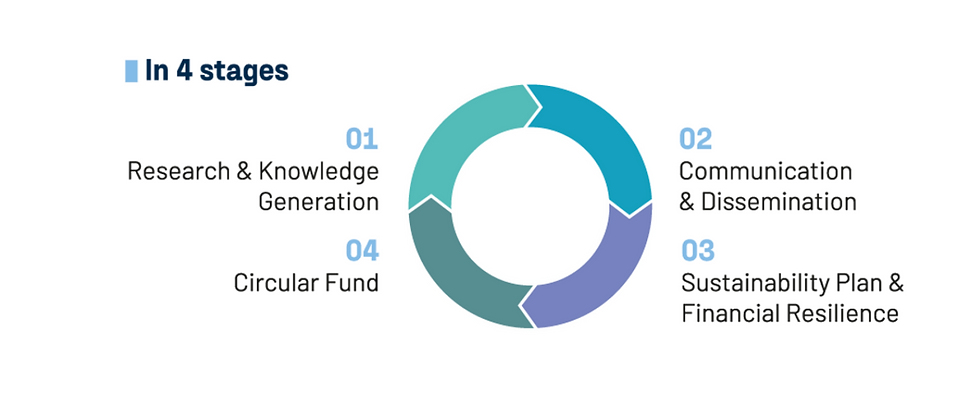Our formula for financial sustainability in civil society
- Nazaret Mossier
- Jul 18, 2024
- 2 min read
Updated: Jul 22, 2024
One of the biggest challenges that exists for civil society organizations is taking control of their financial destinies. Having predictability and autonomy is essential for making the nonprofit sector stronger and more resilient. Hence the importance of the vision of Financial Sustainability, an instrument that allows CSOs (civil society organizations) to grow in the long term.
What are the main challenges for sustainability?
In the study “Financial Sustainability Models of Civil Society Organizations in Latin America”, commissioned by Tinker Foundation and carried out by Civic House, Donar Online and Kubadili, we answer this question and explore the topic in depth. Some of the main challenges of sustainability can be summarized as:
1. The complexities of tax, legal and economic context
2. Lack of seed capital to invest in long-term sustainability
3. Lack of professionalization in the teams
How to change financial practices in civil society for good?
Circular Fund: the formula to create a culture of sustainability
At Civic House we believe that it is possible to create a culture of sustainability considering four stages:

Our Circular Fund is the fourth stage of this process and allows each of the organizations that participate in it to achieve financial self-sustainability.
Its spirit is trust, collaboration and collective responsibility. Their beneficiaries recognize that their efforts create a ripple effect that supports the next generation.
We currently have a cohort of 7 initiatives and when we open a new call we will communicate it through our website and social networks.
The selection process is based on trust and we only require a plan presentation and a financial spreadsheet. It works like this:
Planning for Self-Sustainability: Organizations committed to achieving economic self-sustainability are encouraged to prepare comprehensive 2-3 year plans.
Selective Cohorts: A group of organizations that we believe are ready for self-sustainability are carefully selected to receive funding simultaneously.
Collective start: the initiative is launched collectively, ensuring that all participants share expectations and objectives from the beginning.
Overview Dashboard: A shared dashboard provides visibility into each organization's progress and results, fostering transparency and accountability.
Monthly Facilitation: Regular monthly meetings are facilitated to provide a platform for mutual support, idea sharing and collective growth.
All Civic House organizations have achieved relevant rates of self-sustainability and scaled their impact in our 10+ years of experience.


Comments